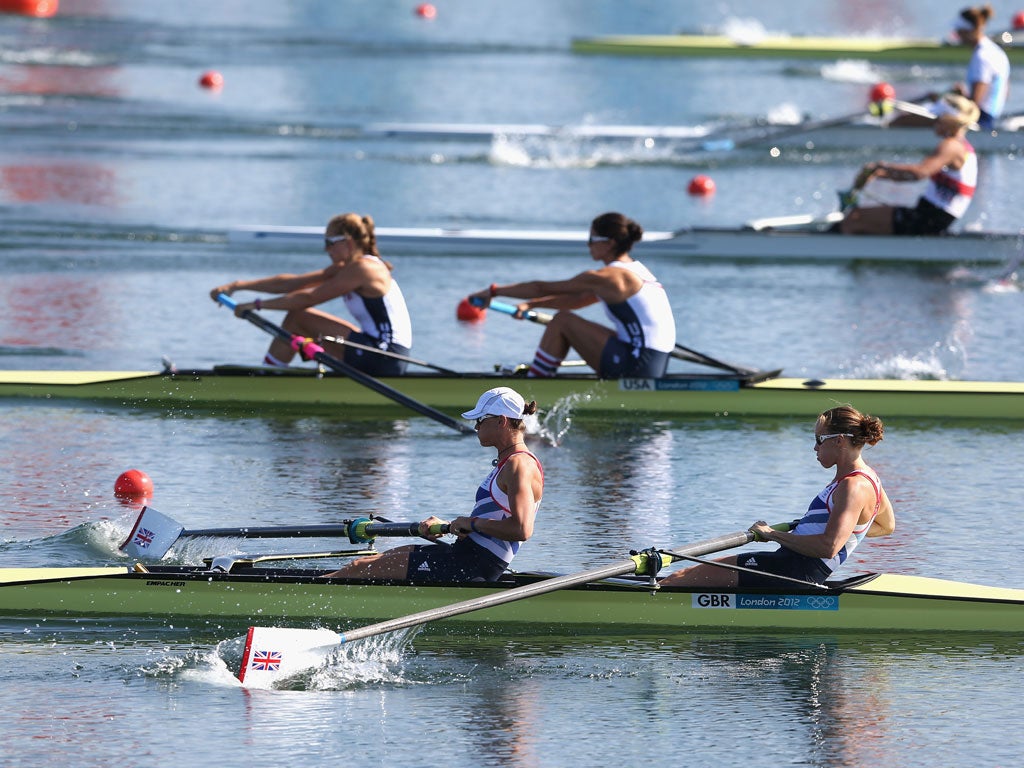
Your support helps us to tell the story
From reproductive rights to climate change to Big Tech, The Independent is on the ground when the story is developing. Whether it's investigating the financials of Elon Musk's pro-Trump PAC or producing our latest documentary, 'The A Word', which shines a light on the American women fighting for reproductive rights, we know how important it is to parse out the facts from the messaging.
At such a critical moment in US history, we need reporters on the ground. Your donation allows us to keep sending journalists to speak to both sides of the story.
The Independent is trusted by Americans across the entire political spectrum. And unlike many other quality news outlets, we choose not to lock Americans out of our reporting and analysis with paywalls. We believe quality journalism should be available to everyone, paid for by those who can afford it.
Your support makes all the difference.THE FIREWORK smoke of a brief night had barely dispersed before they were gathering at Eton Dorney in their thousands, ready to urge their first plausible champions over the sparkling water – and the British rowers, drawn into a funnel of noise, reciprocated with coruscations of their own.
Hailed as the strongest home fleet assembled since Trafalgar, they launched a flagship into their very first skirmish. For Helen Glover and Heather Stanning to draw the opening heat of the regatta had suggested a benign overall destiny, and the hot favourites for the women’s pair promptly obliged with an Olympic record.
And if they were able to dominate their pursuers in nearly perfunctory fashion, their male compatriots were inspired, palpably, to dig deep. The lightweight four rallied for a brilliant win after the Australians tried to break them from the front; in the pair, there was a breakthrough success for George Nash and Will Satch; while the way the eight were closing late permitted hope for revenge on Germany, assuming they qualify from Monday’s repechage. There was also a routine solo qualification from Alan Campbell – completing a great day for Coleraine, after the work of the Chambers brothers in the lightweight four.
But it was Glover and Stanning who set the tone, confirming their eligibility to become the first female rowers to win Olympic gold for Britain. Their final is on Wednesday, two days before Anna Watkins and Katherine Grainger will be fancied for the double sculls.
After the line, as their pursuers slumped exhausted in their seats, Glover and Stanning were already rowing off to the jetty, evincing a decided air that even 6 mins 57.29 secs had merely been means to an end. But if times are not especially cherished, being so contingent on conditions, then it surely counted for something that the Australian winners of the second heat took over four seconds longer.
“It gave me butterflies, the noise from the crowd,” Glover said. “It made me feel really proud. Never underestimate how much difference each person cheering can make. You sit up quite tall. The Americans are definitely an up-and-coming crew, and they were in the lane beside us pushing hard, but I think we felt quite controlled through our race.”
Stanning revealed that their coach, Robin Williams, had attempted to prepare them for the din – some of it, evidently, traceable to friends of her brother, Martin, who were starting his stag party here. “Robin has been trying to put us off in training, shouting random stuff on a megaphone,” she said. “We’re going to enjoy the noise, not be distracted by it.”
The positive energy, however, could be spread through the entire team. “The first race of a regatta is always a marker for how the last few weeks’ training have gone,” Glover said. “And there’s a really big feel of support in the camp. The fact that we’re all on similar programmes will hopefully make people think: ‘They’re in a good place, we’re in a good place.’”
She was quickly vindicated in that belief. Young Satch put it well. “Normally it’s your mum and the dog watching,” he said. “Here, with the noise getting louder and louder, it almost feels like the pain is being taken away from you.”
Certainly the eight’s strong finish emboldened their cox, Phelan Hill, to predict better still. “Remember this was a first race together for this combination,” he said. “Everyone is now in the seat where they belong.” And much the same, judging from their exultant contribution, might be said of some 25,000 spectators – thought to comprise the biggest crowd in rowing history. “I would have said Karapiro, at the 2010 world championship, set the benchmark,” Hill said. “But this has taken it to another level. With stands on both sides, there’s a wall of noise. The buzz is absolutely amazing.”
Join our commenting forum
Join thought-provoking conversations, follow other Independent readers and see their replies
Comments